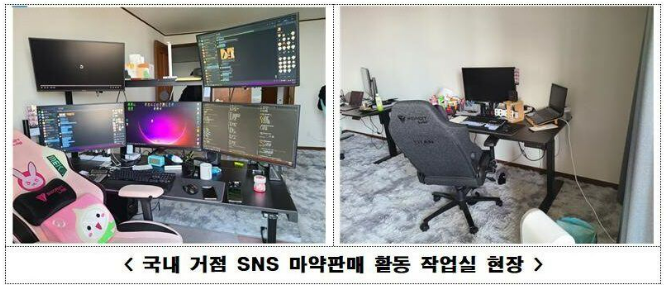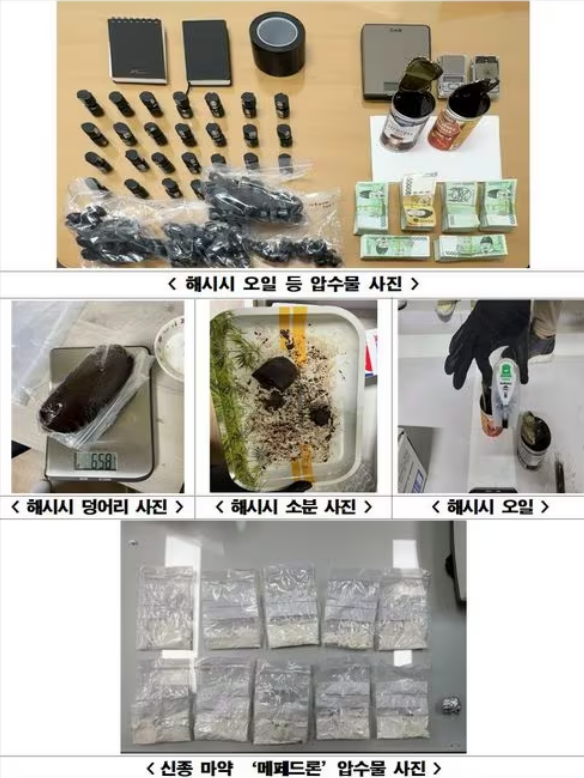Singaporean Drug Trafficker Sentenced in South Korea; CNB to Continue Case Post-Jail
The recent arrest of a 37-year-old Singaporean in South Korea for drug trafficking has drawn significant attention, particularly in light of the disturbing scene involving G-Dragon under the influence of drugs at an airport.
This arrest raises concerns about the influence of drug trafficking on drug use among South Koreans and Singaporeans.
The timing is especially poignant, considering the recent warm reception of ‘Running Man’ in Singapore.
This Singaporean individual was apprehended by the Seoul Metropolitan Police Agency (SMPA) for drug-related offences on 9 April, according to a press release from The Central Narcotics Bureau (CNB) of Singapore.
Notably, he was accompanied by three female associates, two of whom are Singaporean, with the third’s nationality remaining undisclosed.
They are suspected members of an international drug trafficking organisation, reportedly involved in distributing and selling drugs across Southeast Asia, as reported by Kukmin Ilbo.
CNB suspects this man of coordinating and supplying drugs to Singaporean associates for trafficking and sale, employing encrypted chat applications.
Moved to Korea to Escape Singapore Law Enforcements
Immigration records reveal that he had been out of Singapore since 12 Nov 2021.

According to police reports, the man and his associates, initially distributing drugs in Singapore and Vietnam, relocated to South Korea to escape Singaporean law enforcement.

There, they established a base for drug trafficking. They engaged in the distribution of new types of marijuana and methamphetamines overseas from South Korea from September last year to July this year, in violation of drug management laws and other offences.
Residing in Gangnam and Itaewon, they operated chat rooms on Telegram and are reported to have made profits of approximately 250 million won (around SGD$256,000) by selling drugs concealed in jelly, candy, and electronic cigarettes in Singapore and elsewhere.

The “Collaboration” and Collaboration
Their efforts to integrate with domestic drug networks in South Korea were hampered by language barriers, prompting them to recruit a Korean-Singaporean.

Although there have been numerous collaborations between South Korea and Singapore, this illicit partnership stands as an unprecedented event in the news.
The Singaporean man was one of 100 individuals arrested for drug-related offences between April and November, as reported by Chosun Illbo. Among those apprehended, 69 were South Korean, with the remaining 31 from Central and South-East Asian countries.
This case marks the first instance in Korea where a foreign drug organization, using Korea as a base for overseas drug sales, has been apprehended. The police, in collaboration with Korea’s National Intelligence Service (NIS) and Singapore’s CNB, conducted a joint investigation leading to their arrest.
A police official informed Kukmin Ilbo that this case confirms the evolving nature of drug distribution into a transnational form, with traffickers establishing bases globally and utilising social media platforms like Telegram.
Since the Nth room case, Telegram has garnered negative attention in South Korea, and this incident represents a repeat of history, but in the context of drug-related crimes.
The main perpetrator was sentenced to seven years in jail, while an associate received a three-year sentence, as stated by CNB.
But when the Singaporean returns, CNB is to take further action for offences of drug trafficking in Singapore.
Deputy Director Leon Chan of CNB’s operations emphasized the transnational nature of drug trafficking as a cross-border issue, affecting many countries.
He highlighted the successful arrest as a testament to the strong relationship and cooperation between the CNB, NIS, and SMPA.
Traffickers are increasingly turning to encrypted chat applications to market drugs to new clients and to coordinate drug deliveries.
CNB has announced its intention to collaborate with South Korean authorities to ensure the repatriation of the man to Singapore following the completion of his jail term.
Subsequent investigations will delve deeper into his suspected activities in coordinating and supplying drugs to Singaporean associates.




